|
The accused, a resident of Sakinaka, has been booked under Sections 74 (molestation), 75 (sexual harassment) and 76 (use of criminal force to woman with intent to disrobe) of Bhartiya Nyay Sanhita (BNS). No arrest has been made in the case yet.
A man working for an Andheri-based private finance company has been booked for allegedly molesting a 24-year-old employee working in the same firm during an office outing in Kondeshwar, Badlapur. According to police, the complainant, the accused, and seven of their colleagues made a trekking-cum-picnic plan early this month for Kondeshwar in Badlapur (east).Police said the group decided to go to one of the colleague’s flat in Badlapur on Saturday night, spend a night there and then go for trekking the next day. For more details kindly click the below link: https://indianexpress.com/article/cities/mumbai/man-booked-for-molesting-colleague-during-office-outing-9455093/ Courtesy: Express News Service Mumbai | Updated: July 16, 2024 13:02 IST Join Our Posh LinkedIn page: https://www.linkedin.com/showcase/prevention-of-sexual-harassment-at-workplace-posh/?viewAsMember=true Follow PoSH at Work WhatsApp Channel by clicking the below link: https://whatsapp.com/channel/0029Va9OMCUCxoB4LQG1aV3A
0 Comments
In its recent judgment in Aureliano Fernandes vs. State of Goa and Others, the Supreme Court of India, observed that even after a decade of the prevention of sexual harassment law being formulated – the implementation and enforcement is still inadequate. Lack of procedural awareness; lack of confidence in the process and outcome; lack of strict adherence to the enforcement regime and other practical challenges are the main reasons. 'However salutary this enactment may be, it will never succeed i in providing dignity and respect that women deserve at the workplace unless there is strict adherence to the enforcement regime and a proactive approach by all State and non-State actors' the Court observed. While the directions issued by the Supreme Court in this case predominantly concern government departments and authorities, companies, too, should prioritise and undertake review of compliances under the POSH Act. Just last year, the Supreme Court (SC), in a landmark judgment, took wilful cognisance and expressed concern over what is termed a 'sorry state of affairs' surrounding the implementation of Sexual Harassment of Women at Workplace (Prevention, Prohibition & Redressal) Act, 2013 (POSH Act). For more details kindly click the below link: https://www.livelaw.in/law-firms/law-firm-articles-/posh-law-sexual-harassment-lgbtq-bharatiya-nyaya-sanhita-2023-kochhar-co-251616?infinitescroll=1 Courtesy: LiveLaw March 08, 2024 Join our Posh LinkedIn page:
https://www.linkedin.com/showcase/prevention-of-sexual-harassment-at-workplace-posh/?viewAsMember=true Follow our PoSH WhatsApp Channel by clicking the below link: https://whatsapp.com/channel/0029Va9OMCUCxoB4LQG1aV3A Download MHR Learning Academy App: https://ncomz.courses.store?utm_source=whatsapp The court said when a plea is taken of false implication for extraneous reasons, the courts have a duty to make deeper scrutiny of the evidence and decide acceptability or otherwise of the accusations, in order to separate the chaff from the grain.
New Delhi: The Supreme Court on Monday said a deeper scrutiny of charges of sexual harassment at workplace is to be undertaken when a plea of false accusation is made as the charge of this nature is very easy to make and very difficult to rebut. A bench of Chief Justice of India D Y Chandrachud and Justices J B Pardiwala and Manoj Misra said sexual harassment in any form at the work place must be viewed seriously and the harasser should not be allowed to escape from the clutches of law. For more details kindly click the below link: https://www.deccanherald.com/india/sexual-harassment-at-workplace-must-be-viewed-seriously-sc-2759128?utm_source=whatsapp&utm_medium=referral&utm_campaign=socialshare Courtesy: Deccan Herald November 06, 2023 Join our Posh LinkedIn page: https://www.linkedin.com/showcase/prevention-of-sexual-harassment-at-workplace-posh/?viewAsMember=true Follow our PoSH WhatsApp Channel by clicking the below link: https://whatsapp.com/channel/0029Va9OMCUCxoB4LQG1aV3A On its part, the company’s chief human resource officer has said an investigation into the case will be taken up on priority and that the company will arrive at a fair conclusion. A male employee of a Bengaluru-based mobile marketing company has accused one of the product managers of the organisation of sexual harassment at ‘workplace’. The victim, an intern in the company, has shared an email addressed to the management of the company about the details of the incident on X, which has now gone viral.
On its part, the company’s chief human resource officer has said an investigation into the case will be taken up on priority and that the company will arrive at a fair conclusion in less than the legal timeline for such matters. In his communication to the Organisation, the victim said he was invited by the project manager “to their place after being manipulated and falsely comforted” on September 7 at around 12.30 am. For more details kindly click the below link: https://indianexpress.com/article/cities/bangalore/bengaluru-company-male-intern-sexual-harrassment-complaint-8948217/ Courtesy: The Indian Express EPAPER TODAY’S PAPER Wednesday, Oct 04, 2023 Join Our Posh LinkedIn page: https://www.linkedin.com/showcase/prevention-of-sexual-harassment-at-workplace-posh/?viewAsMember=true Follow PoSH at Work WhatsApp Channel by clicking the below link: https://whatsapp.com/channel/0029Va9OMCUCxoB4LQG1aV3A While dealing with a case of sexual harassment of a woman air force personnel by another air force personnel, the Madras High Court directed the Centre Government to ensure that a proper Internal Complaints Committee existed in the Armed Forces in compliance with the Prevention of Sexual Harassment at Work Act. The court also directed the Central Government to sensitise the armed personnel by imparting gender-sensitive awareness training to achieve the objectives of the legislation.
Also Read - Madras High Court Chief Justice Assured Portraits Of BR Ambedkar Will Not Be Removed From Courts: Tamil Nadu Govt And the Central Government is directed to ensure the proper existence of Internal Complaints Committee in the Armed Forces in accordance with the mandates of the Sexual Harassment of Women at Workplace (Prevention, Prohibition and Redressal) Act 2013 and to sensitise the armed personnel imparting gender sensitive awareness training to achieve its objectives. Consequently, connected miscellaneous petition is closed,” the court directed. The Calcutta High Court has recently held that the actions of an accused under the Prevention of Sexual Harassment in the Workplace (Prevention, Prohibition and Redressal) Act, 2013 (“POSH Act”), in being party to an appraisal report of the complainant thereunder, “vitiates and makes a mockery of the entire process.”
In hearing a contempt application filed by the complainant/petitioner against the accused, his company and its agents, a single-bench of Justice Moushumi Bhattacharya directed the respondents/contemnors to prove that they had not been in “contumacious violation” of the Court’s orders, and that the impugned appraisal report was unconnected to the charges under the POSH Act, invoked by the petitioner against the accused/contemnor no 5. It was held: For more details kindly click the below link: https://www.livelaw.in/high-court/calcutta-high-court/calcutta-high-court-posh-workplace-sexual-harassment-accused-participation-appraisal-complainant-232651 Courtesy: LiveLaw July 13, 2023 Join Our HR WhatsApp Group: https://lnkd.in/gpyaXnk4 Join Our Posh LinkedIn page: https://www.linkedin.com/showcase/prevention-of-sexual-harassment-at-workplace-posh/?viewAsMember=true The court said equalising of sexes in every aspect of life is a constitutional imperative and the working environment is required to be as safe and secure for women. The Delhi High Court has held that there is "absolutely nothing" that limits the scope of the Sexual Harassment of Women at Workplace (Prevention, Prohibition and Redressal) Act, 2013 (SHW Act) to cases where a woman employee is sexually harassed by ...
The court said equalising of sexes in every aspect of life is a constitutional imperative and the working environment is required to be as safe and secure for women as it is for men. "Even an apprehension, by a woman, that her safety might be compromised or endangered in the workplace is, therefore, abhorrent to our constitutional ethos," it said. A bench of Justices C Hari Shankar and Manoj Jain upheld an order passed by the Central Administrative Tribunal (CAT) that had dismissed an IRS officer's plea challenging the jurisdiction of an Internal Complaints Committee (ICC) issuing him a notice... "There is absolutely nothing in the SHW Act which limits its scope only to cases where a woman employee is sexually harassed by another employee working in her own office, and excepts its application where the delinquent employee is employed elsewhere the tribunal (CAT) has also held so, and we completely agree. For more details kindly click the below link: https://www.deccanherald.com/national/scope-of-anti-sexual-harassment-law-not-limited-to-cases-in-same-department-delhi-hc-1233506.html Courtesy: Deccan Herald July 3, 2023 Join Our HR WhatsApp Group: https://lnkd.in/gpyaXnk4 Join Our Posh LinkedIn page: https://www.linkedin.com/showcase/prevention-of-sexual-harassment-at-workplace-posh/?viewAsMember=true Panaji: To fulfil the promise that the Prevention of Sexual Harassment at the Workplace (POSH) Act holds out to working women all over the country, the Supreme Court has directed the Union government and all state governments to undertake a time-bound exercise to verify whether all the ministries, departments, government organisations, authorities, public sector undertakings, institutions, and bodies have constituted sexual harassment committees.
The Supreme Court passed the order on a petition filed by former head of department of Goa University, Aureliano Fernandes, who had challenged his dismissal by the GU in 2010 following complaints by student of alleged physical harassment. His appeal was dismissed by the high court in 2012, and he subsequently approached the SC. The POSH Act was legislated a decade ago, and taking stock of its implementation, the court said that the working of the Act is centered on the constitution of internal complaints committees (ICCs) by every employer at the workplace and the constitution of local committees (LCs) and internal committees (ICs) by the government. For more details kindly click the below link: https://timesofindia.indiatimes.com/city/goa/ensure-sexual-harassment-panels-constituted-under-posh-act-sc/articleshow/100712710.cms?from=mdr Courtesy: The Times of India June 3, 2023 Join Our HR WhatsApp Group: https://lnkd.in/gpyaXnk4 Assistant Superintendent of Police, Aligarh, said an investigation into the case is underway. No one has been arrested so far. A PhD student at Aligarh Muslim University (AMU) has accused a professor of sexually harassing her. A PhD student at Aligarh Muslim University (AMU) has accused a professor of sexually harassing her. The police said an FIR has been lodged against the professor under Indian Penal Code (IPC) section 354 (assault or criminal force to a woman with intent to outrage her modesty) after the woman lodged a complaint Saturday. Puneet Dwivedi, Assistant Superintendent of Police, Aligarh, said an investigation into the case is underway. No one has been arrested so far. According to the police, the victim, 29, has said in her complaint she gave PhD pre-submission six months ago and that no comments were provided by the supervisor and other faculty members of the department. “She alleged that she has been trying to convince her supervisor for the last six months but he kept refusing because she had been regularly rejecting his (accused) attempt of sexual advances and overtures,” it added. For more details kindly click the below link: https://indianexpress.com/article/cities/lucknow/aligarh-muslim-university-scholar-accuses-professor-of-sexual-harassment-8634714/ By: Express News Service Courtesy: The Indian Express May 29, 2023 Join Our HR WhatsApp Group: https://lnkd.in/gpyaXnk4 Giving the federations four weeks to submit detailed reports, the NHRC said non-compliance of the PoSH law was a “matter of concern” which could “impact the legal right and dignity of sportspersons”. Taking suo motu cognizance of The Indian Express report highlighting non-compliance of provisions under the Prevention of Sexual Harassment (PoSH) law by national sports federations, the National Human Rights Commission (NHRC) on Thursday issued notices to the erring sports bodies along with the Ministry of Youth Affairs and Sports. Last month, the MC Mary Kom-led committee formed by the government that looked into allegations of sexual harassment by some of the nation’s top wrestlers against Wrestling Federation of India chief and BJP MP Brij Bhushan Sharan Singh pointed out the absence of an Internal Complaints Committee (ICC), as mandated by the 2013 PoSH Act. On May 4, an investigation report by The Indian Express revealed that the wrestling body wasn’t the only one violating the law. Sixteen out of 30 sports federations — of disciplines in which India has participated in the 2018 Asian Games, the Tokyo Olympics in 2021 and last year’s Commonwealth Games — did not have a fully-compliant ICC. According to the law, the ICC needs to have a minimum of four members – at least half of them women – of whom one shall be an external member, preferably from an NGO or an association that works for women’s empowerment or a person familiar with issues related to sexual harassment, like a lawyer. For more details kindly click the below link: https://indianexpress.com/article/sports/sport-others/sexual-harassment-panels-nhrc-notice-to-sports-bodies-ministry-8604777/ By: Express News Service Courtesy: The Indian Express May 12, 2023 Join Our HR WhatsApp Group: https://lnkd.in/gpyaXnk4 The BCCI has called a special general body meeting on May 27 in Ahmedabad and in its five-point agenda, secretary Jay Shah has included “Ratification of Prevention of Sexual harassment policy.” In 2021, the Indian board had decided that its officials, players and contracted individuals will come under POSH guidelines. However, it didn't have any committee to look into allegations.
A few days after the National Human Rights Commission (NHRC) issued a notice to the Board of Control for Cricket in India (BCCI) for non-compliance with the Prevention of Sexual Harassment (PoSH) Act, the Indian board has now decided to act on this missing piece of legislation. The BCCI has called a special general body meeting on May 27 in Ahmedabad and in its five-point agenda, secretary Jay Shah has included “Ratification of Prevention of Sexual harassment policy.” Flags report (in The Indian Express); asks Govt, employers to ensure compliance
A bench of Justices A S Bopanna and Hima Kohli was deciding an appeal filed by Aureliano Fernandes, a former Head of the Department of Political Science at the Goa University, against the Bombay High Court order upholding his dismissal from service on sexual harassment charges. File Stating that “it is disquieting to note that there are serious lapses in the enforcement” of the Sexual Harassment of Women at Workplace (Prevention, Prohibition and Redressal) Act, 2013, popularly known as PoSH Act, almost a decade into its enactment, the Supreme Court Friday issued a slew of directions to ensure its effective implementation. A bench of Justices A S Bopanna and Hima Kohli was deciding an appeal filed by Aureliano Fernandes, a former Head of the Department of Political Science at the Goa University, against the Bombay High Court order upholding his dismissal from service on sexual harassment charges. Allowing the appeal by Fernandes and sending the matter back to the Complaints Committee, the court flagged the report in a “national daily newspaper” that 16 of the 30 national sports federations don’t have an Internal Complaints Committee as stipulated under PoSH. Incidentally, an investigation by The Indian Express on May 4 had revealed that half of the national sports federations don’t have sexual harassment panels as per law. The Indian Express had found that five federations, including wrestling, don’t have an ICC; four don’t have the stipulated number of members; another six lacked the mandatory external member and one federation had two panels but none with an independent member. For more details kindly click the below link: https://indianexpress.com/article/india/gaps-in-posh-enforcement-must-secure-womens-work-space-sc-8606429/ Written by Ananthakrishnan G Courtesy: The Indian Express May 13, 2023 Join Our HR WhatsApp Group: https://lnkd.in/gpyaXnk4 Explained | What is the PoSH Act and why has the Supreme Court flagged lapses in its implementation?5/22/2023 The Supreme Court has flagged “serious lapses” in the implementation of the ten-year-old PoSH Act to protect women from sexual harassment in workplaces, calling for its robust and efficient implementation The story so far: Ten years after the Sexual Harassment of Women at Workplace (Prevention, Prohibition and Redressal) Act, 2013 (PoSH) came into force, the Supreme Court Bench of India has said there are “serious lapses” and “uncertainty” regarding its implementation, issuing directions to the Union, States, and Union Territories to verify if all government bodies had formed Internal Complaint Committees and to ensure that the composition of such panels is in strict adherence with the Act.
In 1992, Bhanwari Devi, a social worker with the Women’s Development Project of the Rajasthan government was gang-raped by five men after she tried to prevent the marriage of a one-year-old girl. While hearing pleas filed by activist groups against the crime, the SC, noting the absence of any law “enacted to provide for effective enforcement of the basic human right of gender equality” guarantee against “sexual harassment at workplaces”, laid down a set of guidelines in 1997, christened the Vishakha Guidelines, to fill the statutory vacuum till a law could be enacted. These were to be “strictly observed in all workplaces” and were binding and enforceable in law. The Court drew its strength from several provisions of the Constitution including Article 15 (against discrimination on grounds only of religion, race, caste, sex, and place of birth), also drawing from relevant International Conventions and norms such as the General Recommendations of the Convention on the Elimination of All Forms of Discrimination Against Women (CEDAW), which India ratified in 1993. For more details kindly click the below link: https://www.thehindu.com/news/national/explained-the-indian-law-on-sexual-harassment-in-the-workplace/article66854968.ece Courtesy: The Hindu May 15, 2023 Join Our HR WhatsApp Group: https://lnkd.in/gpyaXnk4 In a significant judgement, the Supreme Court of India has issued a slew of directions for the proper implementation of the Sexual Harassment of Women at Work Place (Prevention, Prohibition and Redressal) Act, 2013 [POSH Act] all over the country.
The Act was enacted with the aim to protect women from sexual harassment at workplaces. The Court has directed the Union Government, State Governments and Union Territories to verify if all the Ministries, Departments, other government bodies have constituted committees where the victims of sexual harassment can lodge their complaints. Also Read - Referral Court Has Duty To Conclusively Decide Issue Of ‘Existence & Validity Of Arbitration Agreement’ Raised At Pre-Referral Stage : Supreme court Notably, the Court has also directed that statutory bodies of professionals such as the Bar Council of India, National Medical Commission, Institute of of Chartered Accountants of India, also constitute such bodies. A Bench of Justices AS Bopanna and Hima Kohli was considering an appeal plea challenging a Bombay High Court judgement which accepted the report of of the Standing Committee (under the POSH Act) and dismissed the appellant from services and future employment. For more details kindly click the below link: https://www.livelaw.in/supreme-court/supreme-court-directions-posh-act-sexual-harassment-workplace-228580 Courtesy: LiveLaw 12 May 2023 SC gives eight weeks for government Ministries, bodies to comply with mandates of the 2013 Act.
The Supreme Court on May 12, in a judgment, said there are “serious lapses” and “uncertainty” in the implementation of the Protection of Women from Sexual Harassment (PoSH) Act, leaving many working women no choice but to leave their jobs. A Bench of Justices A.S. Bopanna and Hima Kohli, in a 62-page judgment, said the “sorry state of affairs” concerning the anti-sexual harassment at workplace law even after a decade of its introduction was “disquieting”, and it was time for the Centre and States to take affirmative action. The PoSH Act was passed in 2013. It defined sexual harassment, lay down the procedures for complaint and inquiry, and the action to be taken in cases of sexual harassment. The PoSH Act mandates that every employer must constitute an Internal Complaints Committee (ICC) at each office or branch that has 10 or more employees. It defines various aspects of sexual harassment, and lays down procedures for action in case of a complaint. (Representational/File)
An investigation published on Thursday (May 4) in The Indian Express revealed that more than half — 16 — of India’s 30 national sports federations do not have an Internal Complaints Committee (ICC), a legal requirement under the Prevention of Sexual Harassment (PoSH) Act, 2013. For more details kindly click the below link: https://indianexpress.com/article/explained/explained-law/posh-act-sexual-harassment-workplace-8591018/ Courtesy: The Indian Express 04-05-2023 Join Our HR WhatsApp Group https://chat.whatsapp.com/Ll2DJFGG2l9Le4INLgR0J6 Nirathanka has conducted a Training Programme on the Prevention of Sexual Harassment at Saddles International Automotive & Aviation Interiors Pvt Ltd. On 24th of March 2023. More than 150 Employees participated in the training program, which was well received. PARIS — Half of women scientists worldwide have been victims of workplace sexual harassment at some point in their careers, reported a survey published Thursday, March 16.
The poll, which included more than 5,000 researchers across 117 countries, showed 49 percent of women scientists saying that they had “personally experienced at least one situation” of harassment. Nearly half of the cases took place after the MeToo movement emerged in 2017, according to the survey conducted by the Ipsos polling firm on behalf of the L’Oreal Foundation. For 65 percent of the women, the harassment had a negative impact early in their careers. Yet only one in five victims reported her experience to the organization concerned. For more details kindly click the below link: https://newsinfo-inquirer-net.cdn.ampproject.org/c/s/newsinfo.inquirer.net/1744683/survey-half-of-women-scientists-worldwide-sexually-harassed/amp He and she attended a company-nominated training program outside the company premises. After the training program, she complained to the ICC that he sexually harassed her during the training program. Is this complaint valid under the Sexual Harassment of Women at Workplace (Prevention, Prohibition, and Redressal) Act, 2013?
YES. The incident took place during a training program, and according to the Act, the venue of the training program is the workplace. The Prevention, Prohibition, and Redressal (PPR) approach is a key feature of the POSH Act, 2013. This approach aims to create safe and harassment-free workplaces for women.
Prevention: It refers to the steps taken by the employer to prevent sexual harassment in the workplace. Employers must take measures such as establishing internal committees, conducting awareness and sensitization programs and implementing policies and guidelines to prevent sexual harassment in the workplace. Prohibition: This refers to the prohibition of sexual harassment in the workplace. Here, prohibition is strictly related to restricting unwelcoming acts/behaviors in the workplace related to sexual harassment. Employers must communicate such restrictions through policy, process, and awareness programs. They must ensure that their employees, including visitors, are aware of such prohibitions. Redressal: This refers to the mechanisms put in place to address and redress complaints of sexual harassment in the workplace. Employers are required to establish internal committees to address sexual harassment complaints, and employees have the right to file complaints with the committee if they experience any form of sexual harassment. What kinds of harassment are illegal as per POSH Act, 2013?
The Prevention of Sexual Harassment at Workplace Act, 2013 (POSH Act) defines Sexual Harassment as any unwelcome acts or behavior, whether directly or by implication. In line with this, the following acts are considered illegal:
A male worker kept a romantic song as his phone ringtone. Hearing this, a female colleague filed a sexual harassment complaint against the male worker with the ICC. Is it valid?
→Whether this complaint is valid or not depends on the particular circumstances of the case and the provisions of the POSH Act, 2013. In this context, it may be difficult to determine whether a male worker's choice of ringtone is sufficient to constitute sexual harassment. →As per POSH Act, sexual harassment is unwelcome sexual conduct, whether verbal, non-verbal, or physical. If the male worker's choice of ringtone is based on sexual content or innuendo, or if it creates a hostile work environment for the female colleague, it may be considered sexual harassment. →However, if the ringtone is simply a romantic song with no sexually explicit content, it may not be considered sexual harassment under the law. It is essential to consider the context in which the ringtone is played, the impact it has on the female colleague, and whether it interferes with her ability to work in a comfortable and safe environment. →The ICC must thoroughly investigate the matter, gather evidence and determine whether the male worker's conduct meets the definition of sexual harassment of the act before proceeding. The wife & husband work in the same company and are allowed to work from home from 8:00 am to 5:00 pm. They took financial benefit from the company to buy the required furniture to work from home. After a few days, the wife complained to ICC that her husband had sexually harassed her during working hours. Is this complaint valid under the Sexual Harassment of Women at Workplace (Prevention, Prohibition, and Redressal) Act, 2013?
YES As per POSH Act 2013, we have an excellent POSH policy and constituted an IC Committee. As we meet these requirements, we do not have time to provide POSH training to employees due to production pressure. Is this okay?
No, it is not okay. As per the POSH Act 2013, every employer must provide awareness through training programs at regular intervals for all employees (including contract labour & trainees) on the prevention of sexual harassment. Such programs must sensitize the employees to the provisions of the Act. The POSH awareness sessions must cover the following:
Can inappropriate behavior occurring outside of the factory premises still be considered a violation of the POSH Act?
Yes. The inappropriate behavior that occurs outside the workplace but has a nexus to the workplace can still be considered a violation of the POSH Act. As per section 2 (o) (v) of the Act, the workplace includes: any place visited by the employee arising out of or during the course of employment including transportation by the employer for undertaking such journey. In line with this, if a woman employee is subjected to inappropriate behavior by a co-worker, supervisor, or customer during a work-related event or on work-related travel, it will be considered a violation of the POSH Act. |
Categories
All
Prevention of Sexual Harassment at Workplace (PoSH)50,000 HR PROFESSIONALS ARE CONNECTED THROUGH OUR NIRATHANKA HR GROUPS.
YOU CAN ALSO JOIN AND PARTICIPATE IN OUR GROUP DISCUSSIONS. |

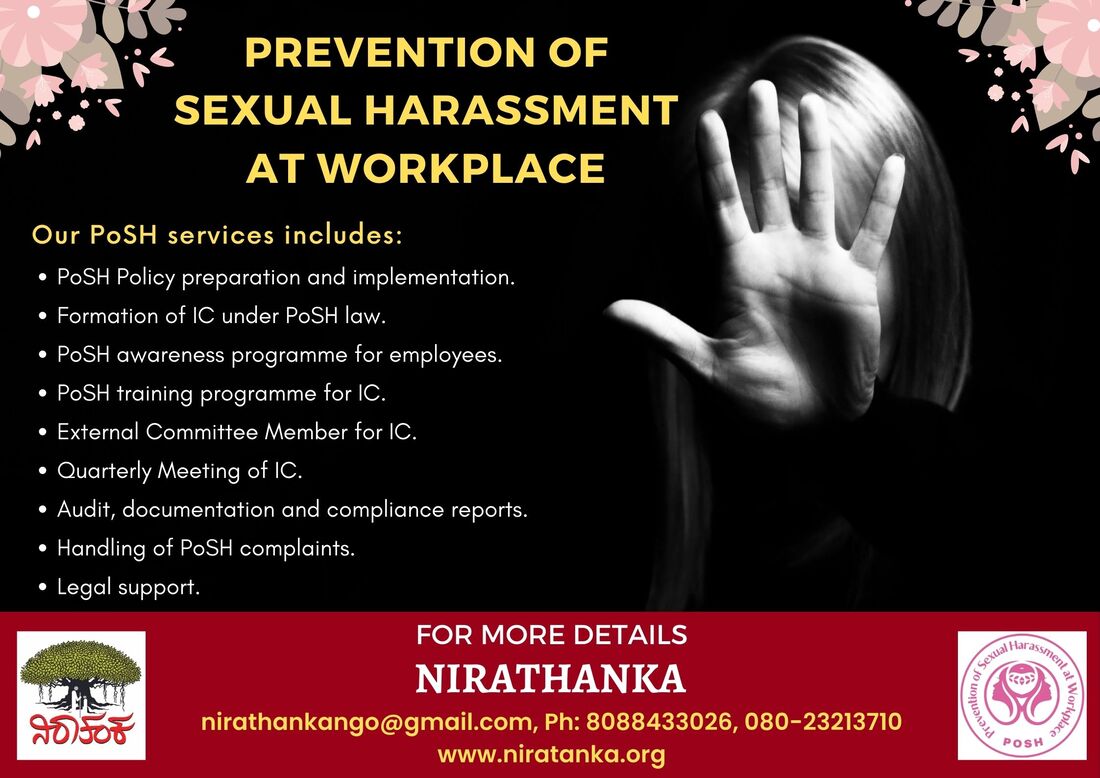


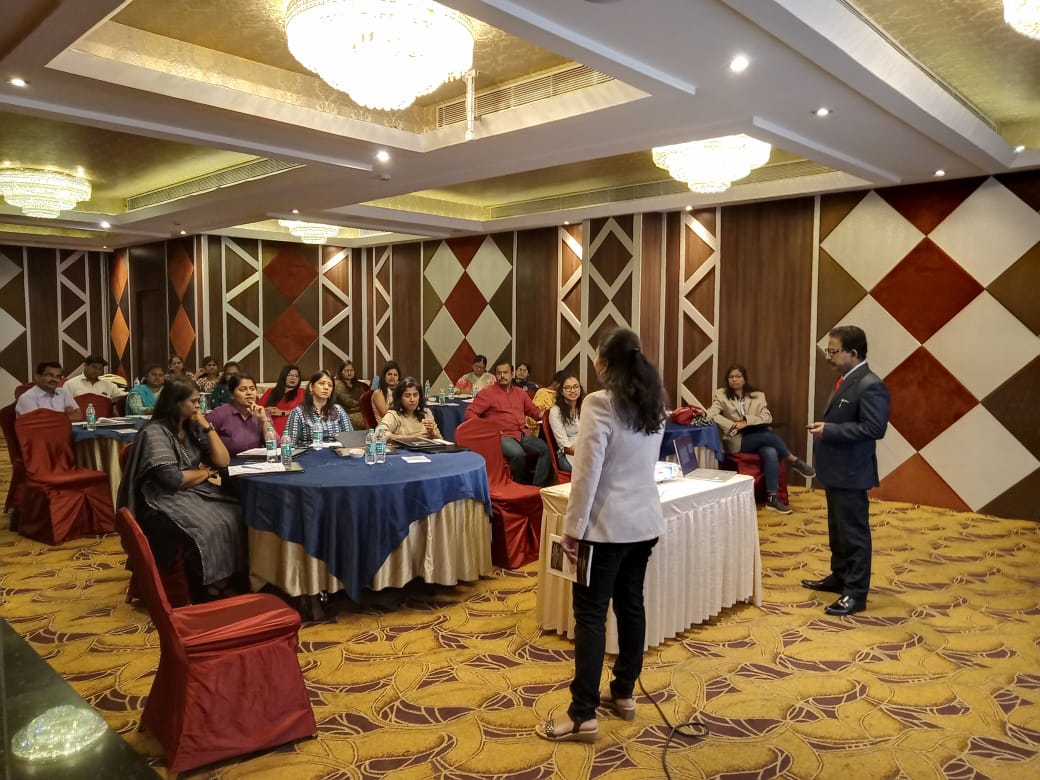
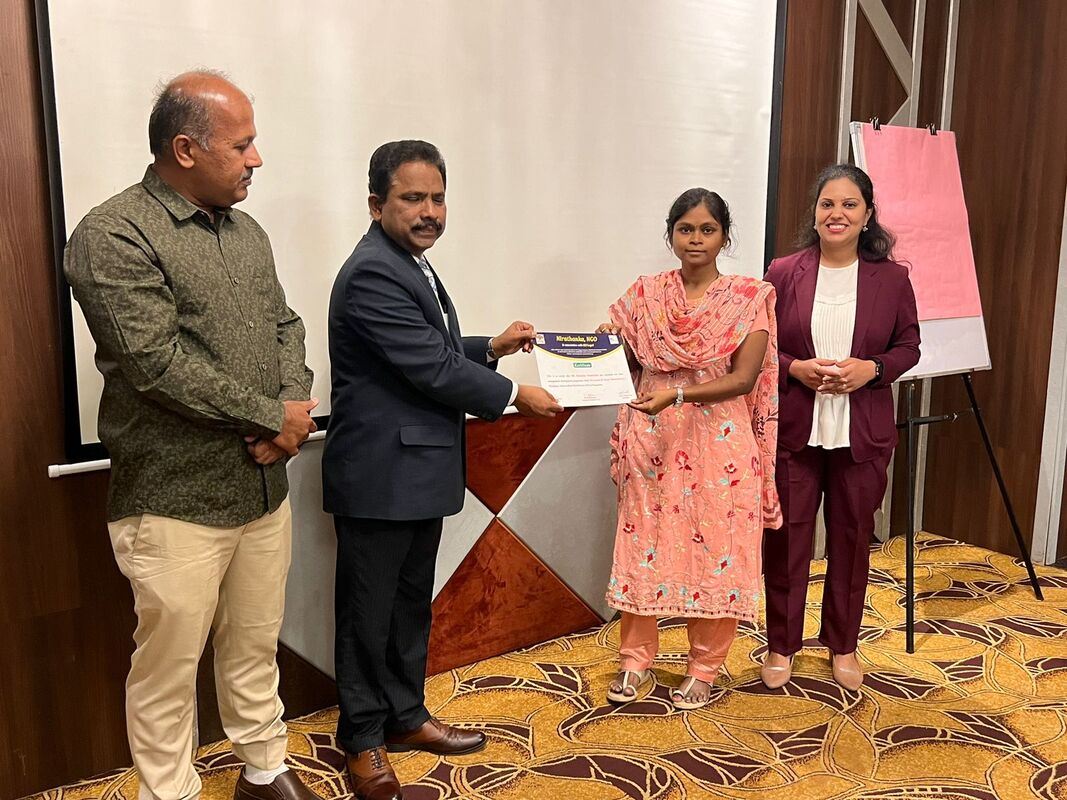
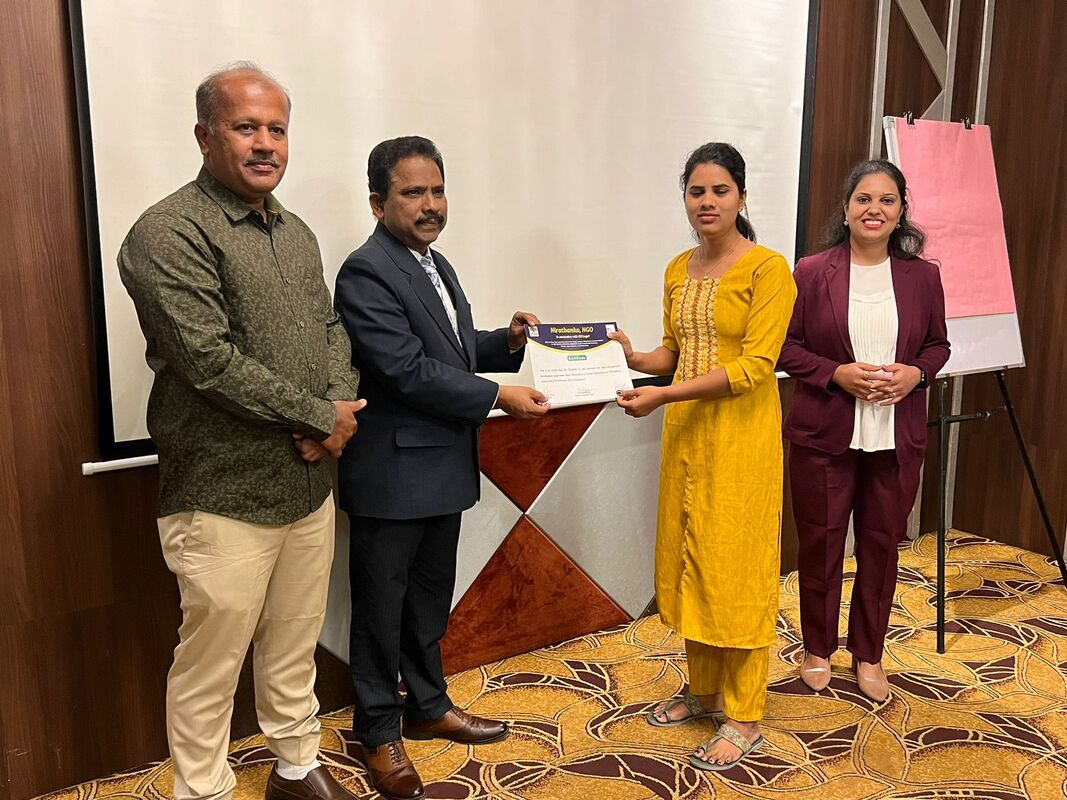
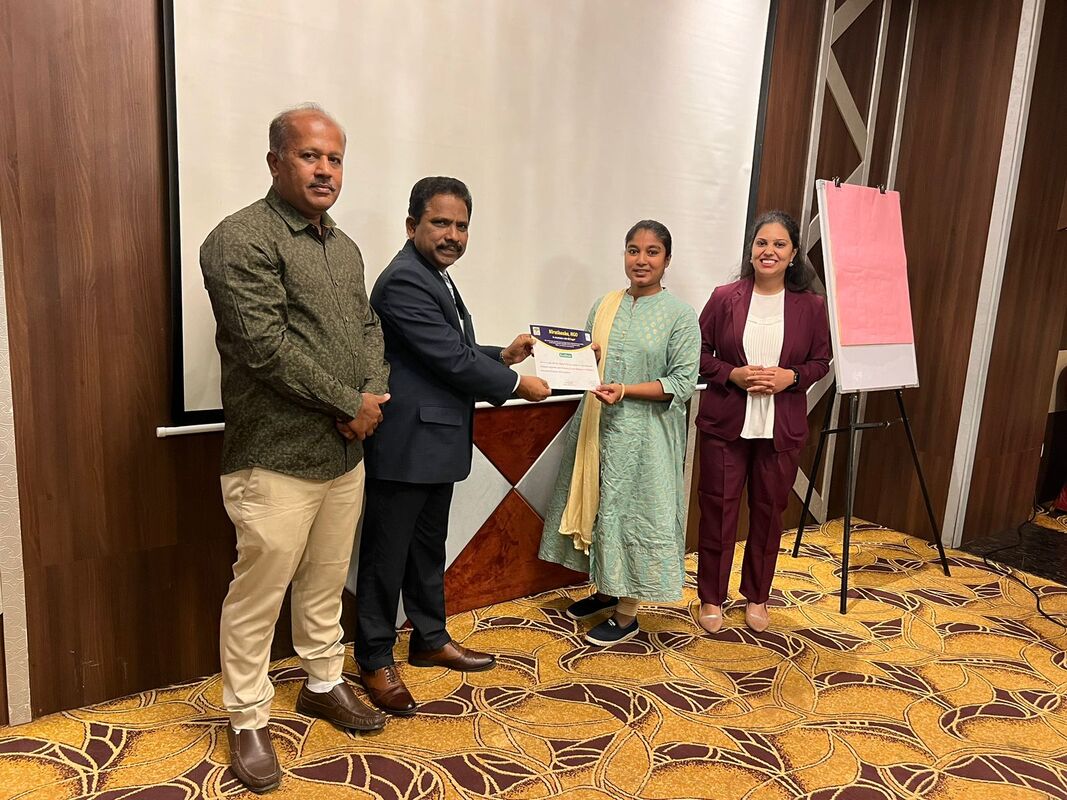
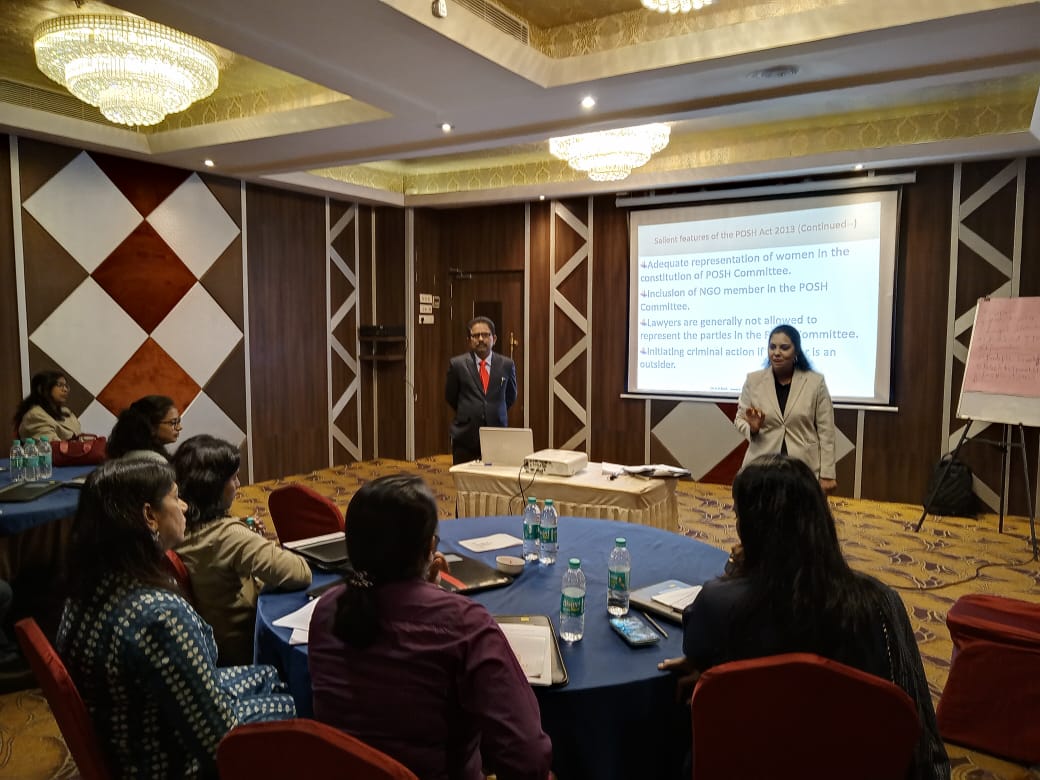
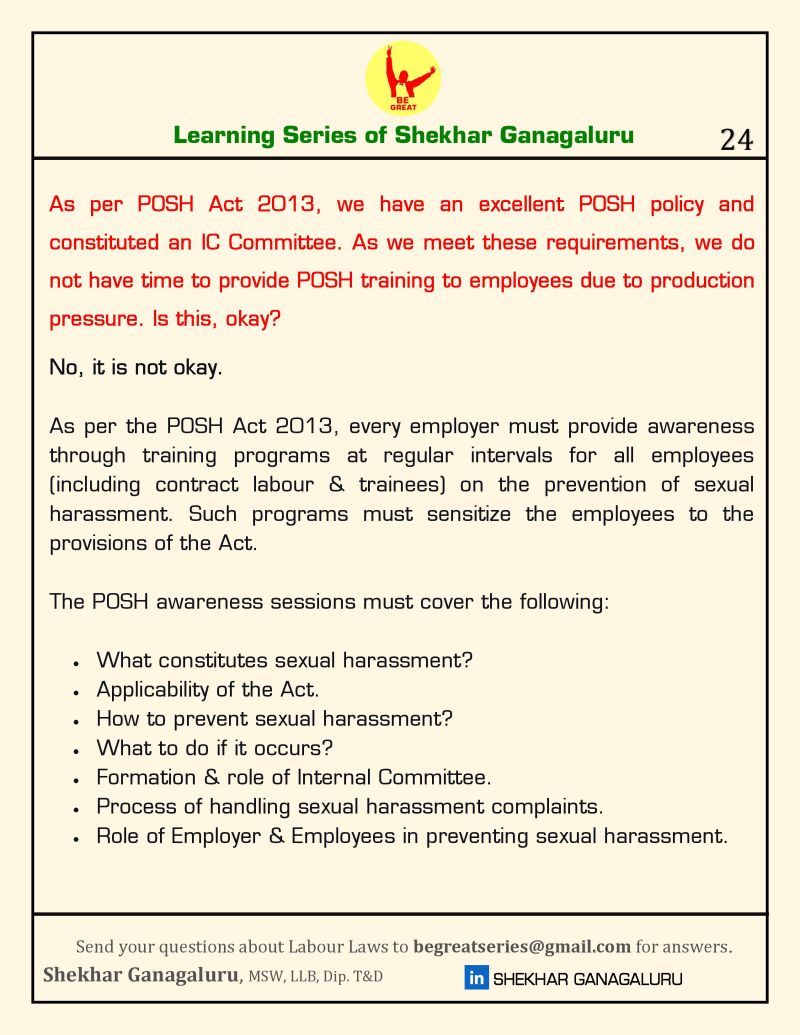
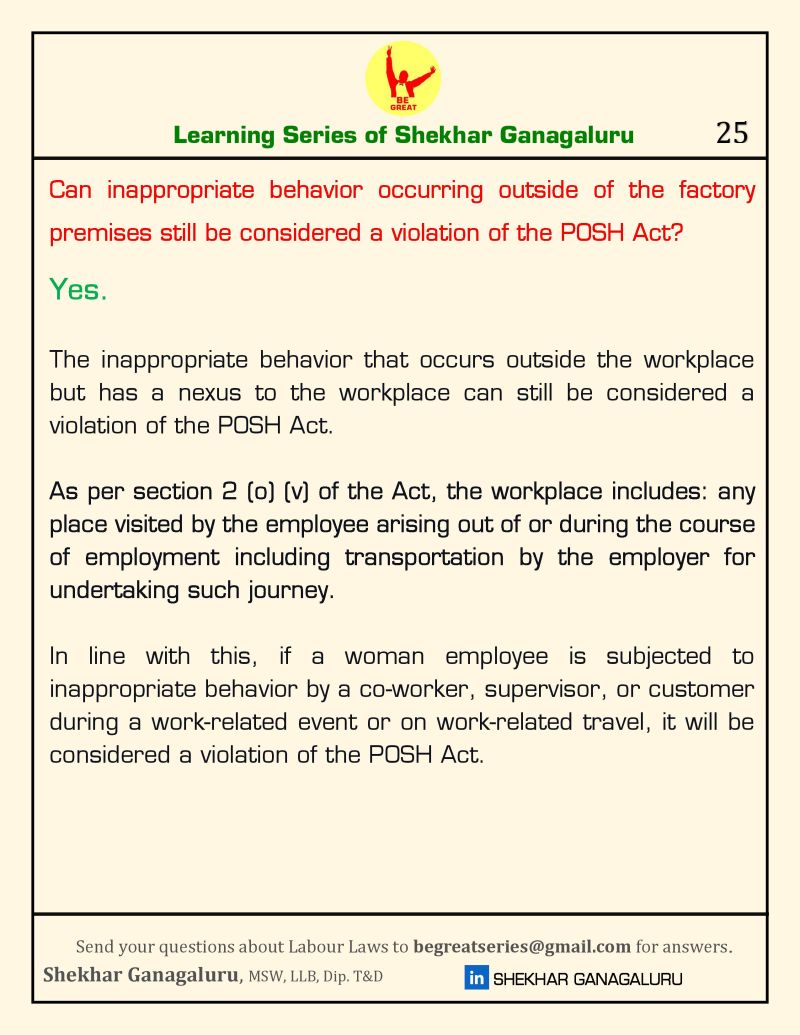








 RSS Feed
RSS Feed




